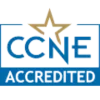Expand your Scope of Care Across the Lifespan as an FNP
Walsh University’s online Post Master’s Certificate – Family Nurse Practitioner (PMC-FNP) program was designed for RNs who hold a master's degree in nursing and want to make a more meaningful, long-lasting change in their community. This certificate will expand your competencies and scope of practice to help fill the need for primary care providers.
With high academic standards at a lower cost, this online FNP Post-Master's Certificate program will provide an environment for you to work alongside experienced faculty as you gain the skills needed to expand your scope of practice. You can complete the program in as few as two years full-time, so you can continue to care for patients.
Online FNP Program Fast Facts
If you are interested in taking your career to the next level, Walsh University’s online Post Master’s Certificate – Family Nurse Practitioner program can help you achieve your goals.
Designed with working nurses in mind, this program offers the convenience of online coursework along with hands-on clinical experiences, providing you the knowledge and skills to focus on the primary care needs of patients as you advocate for their well-being.
-
Walsh University’s online Post-Master’s Certificate – Family Nurse Practitioner (PMC-FNP) program allows you to work alongside faculty as you develop the core competencies required to care for patients across the lifespan. The program consists of:
- 100% online coursework (excludes clinicals)
- 21 – 30 total credit hours* (complete in as few as six semesters, or two years)
- Three start dates per year (fall, spring, summer)
- Three clinical rotations (700 hours)
- Two intensive experiences (one online, one on campus)
*NURS 610, NURS 612 and NURS 614 courses may be waived for currently certified Nurse Practitioners in specialty practice (adult, women’s health, pediatrics, nurse midwifery) and in current practice.
-
-
-
-
Walsh University’s online Post-Master’s Certificate – Family Nurse Practitioner (PMC-FNP) program allows you to work alongside faculty as you develop the core competencies required to care for patients across the lifespan. The program consists of:
- 100% online coursework (excludes clinicals)
- 21 – 30 total credit hours* (complete in as few as six semesters, or two years)
- Three start dates per year (fall, spring, summer)
- Three clinical rotations (700 hours)
- Two intensive experiences (one online, one on campus)
*NURS 610, NURS 612 and NURS 614 courses may be waived for currently certified Nurse Practitioners in specialty practice (adult, women’s health, pediatrics, nurse midwifery) and in current practice.
Online PMC-FNP Program Curriculum
Walsh’s contemporary curriculum ensures students are equipped with the core competencies required to prepare for their board certification. Students will complete 21-30 credit hours and 700 direct patient clinical hours in as few as two years of full-time study. Below is a sample list of courses you will take while enrolled in the PMC-FNP program. For a full list, please download a brochure.
This course focuses on the inter-relationships of human biological systems, biochemical, genetic and cellular concepts which provide the framework for study of advanced pathological concepts. Case studies illustrate theoretical concepts and assist in the application of theory to practice. (3 credits)
This course builds on the students’ knowledge and skills of Advanced Health Assessment focusing on the diagnostic process within the primary care context. Evidence based practice will be incorporated to assist students through the inductive process of moving from specific physical findings or patient concerns to possible diagnoses based on history, physical, and laboratory and diagnostic tests. Students will be expected to synthesize diagnostic information in order to arrive at appropriate diagnoses. (3 credits)
Clinical pharmacology builds upon NURS 612 Advanced Pharmacology. Specific requirements, responsibilities, interprofessionalism, and concerns as an APN prescriber, including safe prescription writing and medication management of patients throughout the life span, including persons with multiple chronic conditions (MCC), will be comprehensively reviewed. (3 credits)
This course emphasizes illness prevention, healthy lifestyle adaptations, wellness promotion and health maintenance of the adult and elderly patient including health/wellness motivation and promotion, disease prevention, and self-determination. The interrelationships between disease processes, human physiology, and pharmacologic and other treatment modalities inherent in the care of the adult or elderly patient with multiple chronic healthcare conditions (MCC) will also be explored. (3 credits)
This course emphasizes illness prevention, healthy lifestyle adaptations, wellness promotion and health maintenance in the care of women and pediatric patients and families. Students synthesize knowledge from health assessment, pharmacology, diagnostic and disease management courses, family health nursing. The course has a strong focus on providing culturally competent care of underserved and vulnerable populations. (3 credits)
Want More Info?
Submit your information to instantly access a digital program brochure.
Next App Deadline:
April 13, 2026
Clinical Placement Support
We know finding preceptors for clinical rotations can be one of the most challenging and stressful parts of any nursing program. As a Walsh PMC-FNP student, you’ll be paired with a clinical placement coordinator who will collaborate with you to secure clinical sites and preceptors for your clinical courses.
Our goal is to facilitate a streamlined, high-quality clinical placement experience to help you apply newly gained knowledge, values and skills from the classroom to the clinical area. By assisting in the management of placement logistics, we hope you’ll be free to focus your efforts where they’re needed most—on coursework and developing competencies.
We collaborate with students to source and vet placement sites for all our online PMC-FNP students.
We assist in the heavy lifting to confirm your placement site meets all of the necessary clearances.
We’ll be readily available to answer any logistical questions you have about the placement process.
Online PMC-FNP Program Careers and Outcomes
According to the Bureau of Labor Statistics, there were more than 220,300 licensed nurse practitioners in the United States in 2020. That number is projected to increase by a massive 52% from 2020-2030. By comparison, the number of positions for registered nurses is expected to grow by 9% in the same time period, while the total number of jobs for all professions is projected to increase by 4%.
Family Nurse Practitioners work in a variety of environments, including:
- Primary care settings
- Ambulatory care centers
- Clinics
Along with appealing job opportunities, nurse practitioners also enjoy far above-average compensation, with median wages of $109,820 in 2019. This compares to median wages of $73,300 for registered nurses in 2019 and median annual wages of $39,810 for all occupations.
$109,820
Media Annual Salary
*(U.S. Bureau of Labor Statistics)
Areas for Clinical Practice:
- Primary care settings
- Ambulatory care centers
- Clinics
- Hospitals
An FNP Nurse Fills a Growing Demand for Primary Care Providers
Family Nurse Practitioners, or FNPs, are highly educated advanced practice registered nurses who work autonomously or in collaboration with other healthcare professionals to deliver primary care to patients. An online PMC-FNP program covers a curriculum that prepares a qualified nurse to take the FNP National Certification exam. FNP nurses care for individuals and families throughout each stage of their lives, providing treatment for a range of medical problems and non-life-threatening acute conditions in outpatient settings, medical clinics and other healthcare environments.
An FNP nurse who graduates from an online MSN program or FNP Certificate program is increasingly being called upon to fulfill the essential need for primary healthcare. According to the Centers for Disease Control and Prevention, the number of physician office visits tops 1 billion in the U.S. today. More than 50% of those visits are made to primary care providers. Couple that with the fact that today, a smaller percentage of physicians are entering the field than are practicing, suggests that shortages will worsen over time. Due to the dwindling number of primary care physicians, an FNP nurse is perfectly positioned to help fill the gap for primary care providers.
With a focus on preventative care, health care policy, health promotion, clinical assessment and management, Walsh University’s PMC-FNP online program can help you prepare to become a confident family nurse practitioner who’s ready to make a difference in the lives of patients and entire communities as a primary care provider. An online FNP Certificate program can provide a nurse with the family care skills that healthcare organizations and clinics need.
The master’s degree program in nursing at Walsh University is accredited by the Commission on Collegiate Nursing Education (http://www.ccneaccreditation.org).



